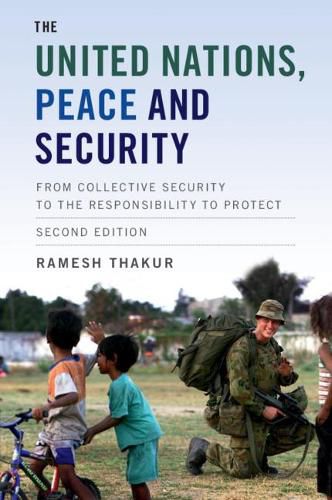Readings Newsletter
Become a Readings Member to make your shopping experience even easier.
Sign in or sign up for free!
You’re not far away from qualifying for FREE standard shipping within Australia
You’ve qualified for FREE standard shipping within Australia
The cart is loading…






Ending humanitarian atrocities has become as important for the United Nations as preventing interstate war. This book examines the transformation of UN operations, analysing its changing role and structure. Ramesh Thakur asks why, when and how force may be used, and argues that the growing gulf between legality and legitimacy is evidence of an eroded sense of international community. He considers the tension between the United States, with its capacity to use force and project power, and the United Nations, as the centre of the international law enforcement system. He asserts the central importance of the rule of law and a rules-based order focused on the United Nations as the foundation of a civilised system of international relations. This book will be of interest to students of the United Nations and international organisations in politics, law and international relations departments, as well as policymakers in governmental and non-governmental international organisations.
$9.00 standard shipping within Australia
FREE standard shipping within Australia for orders over $100.00
Express & International shipping calculated at checkout
Ending humanitarian atrocities has become as important for the United Nations as preventing interstate war. This book examines the transformation of UN operations, analysing its changing role and structure. Ramesh Thakur asks why, when and how force may be used, and argues that the growing gulf between legality and legitimacy is evidence of an eroded sense of international community. He considers the tension between the United States, with its capacity to use force and project power, and the United Nations, as the centre of the international law enforcement system. He asserts the central importance of the rule of law and a rules-based order focused on the United Nations as the foundation of a civilised system of international relations. This book will be of interest to students of the United Nations and international organisations in politics, law and international relations departments, as well as policymakers in governmental and non-governmental international organisations.